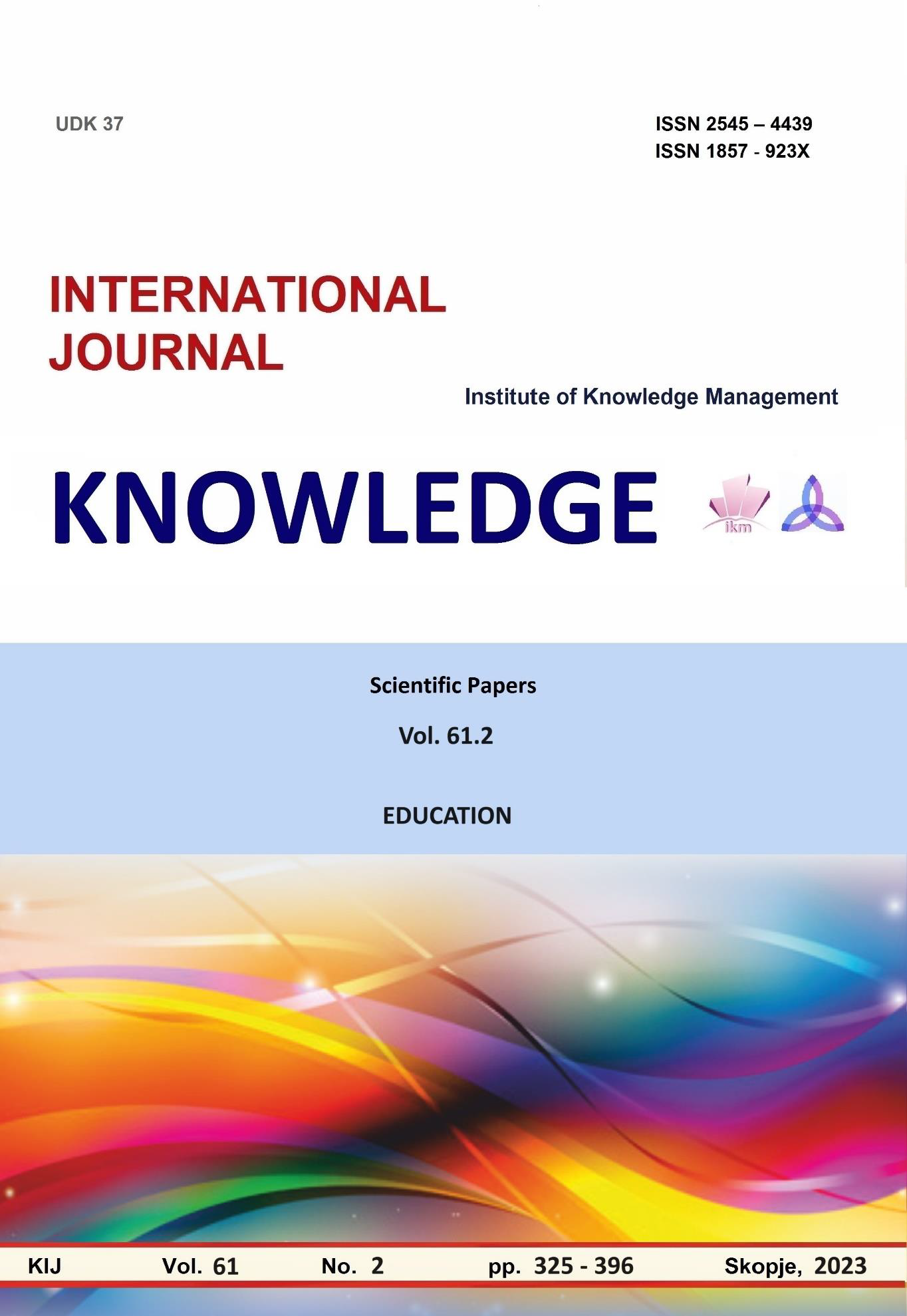СТИМУЛИРАНЕ НА НЕСТАНДАРТНОСТТА НА БЪДЕЩИ ПЕДАГОЗИ ЗА РАЗВИВАНЕ НА СОЦИАЛНИ КОМПЕТЕНТНОСТИ В ДЕТСКАТА ГРАДИНА
STIMULATING THE UNCONVENTIONALITY OF FUTURE TEACHERS TO DEVELOP SOCIAL COMPETENCES IN KINDERGARTEN
Author(s): Blaga DimovaSubject(s): Social Sciences, Education, Preschool education, Pedagogy
Published by: Scientific Institute of Management and Knowledge
Keywords: social competence;critical thinking;unconventionality;play
Summary/Abstract: The purpose of this article is to present non standard ideas to students studying the specialties "Preschool and Primary School Pedagogy" and "Preschool Pedagogy and Foreign Language" at the University "Prof. Dr. Asen Zlatarov" Burgas regarding the development of social competences in preschool children. The tasks to be solved in it are: - To define the concept of "social competence" in a substantive plan; - To present non standard ideas to students for developing social competences in preschool children; - To summarize the obtained results. As one of the key competences laid down in the European reference framework for key competences for lifelong learning, social competence is a set of knowledge, skills and attitudes necessary for the future adult for his successful and effective social realization in society. The building of social skills that develop the child's ability to successfully interact and cooperate with peers and adults, the formation of a socially responsible attitude towards others, autonomy and independence as a set of self control, self education and self service, critical thinking and the ability to detect social problems and resolving them in a way equally satisfying to both parties are part of the realized elements of "social competence". The Children with highly developed social skills have higher self esteem, while the lack of important social skills in childhood is a prerequisite for mental health problems later in life. The direct relationship between the formation of social competences in childhood and proven academic achievements in the future has been empirically proven. Therefore, in addition to the indisputable role of the family in the process of the primary socialization of the child's personality in this context, the preparation and qualification of students future educators for the improvement of the social competence of children within the framework of preschool education is extremely important. The game, at the same time as a form, method, means and concept, contributes to the maximum effective organization of the pedagogical interaction in the kindergarten, as well as implies a maximum expression of non standard, resp. the creative essence of the teaching profession. That is why the main focus of the current work is the analysis of the ideas of future educators for developing social competences in preschool children through play.
Journal: Knowledge - International Journal
- Issue Year: 61/2023
- Issue No: 2
- Page Range: 373-376
- Page Count: 4
- Language: Bulgarian

